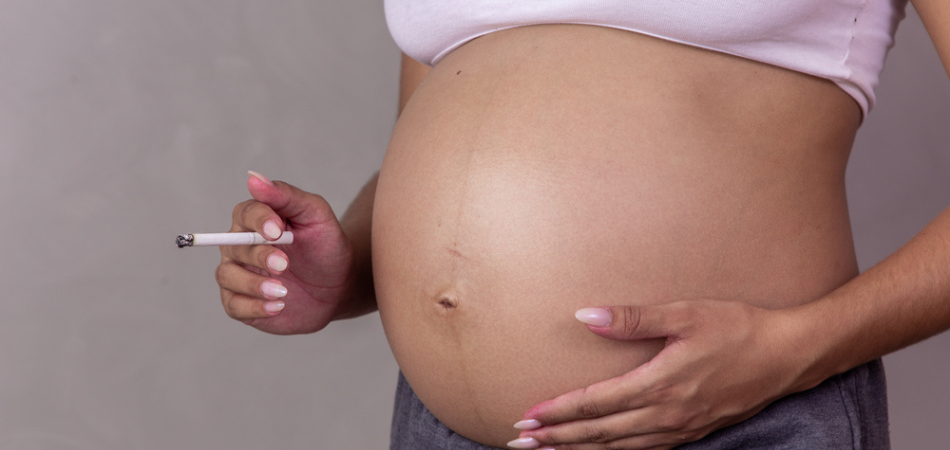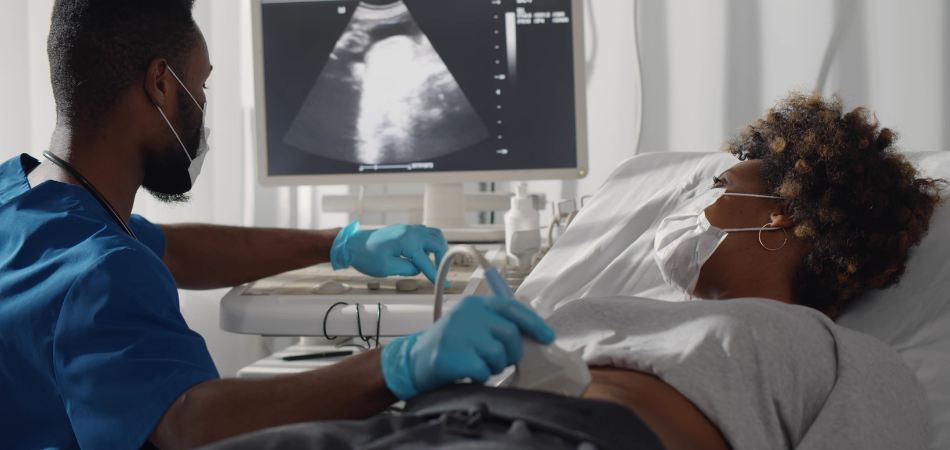Using drugs during pregnancy is heavily stigmatised. This can mean people delay getting help – not just for their addiction, but also for seeking out maternal health and social care services. It can also mean that women who are in an extremely vulnerable position – struggling with an addiction and pregnant – put off reaching out for the help they need due to stigma and shame. However, the sooner you can get support, the better the outcome for you and your baby.
It’s important to know that support is available. Addiction rehab and detox are non-judgemental environments – their priority is getting you the care and help that you need. You will not be alone, nor will you be the first person people in this field have seen in this situation. In addition, midwives and doctors see thousands of patients a year and will have seen people in your position many times before. It’s their job to help you.
Substance use and pregnancy
Using substances during pregnancy is more common than many people realise. 15.9% of pregnant women use tobacco, 8.5% use alcohol, and 5.9% use drugs.
Substance use during pregnancy is linked to a whole range of risks for the baby’s health. These risks will depend on the substance but include miscarriage, stillbirth, preterm delivery, low birth weight, and long-term health issues for the baby after they’re born.
Some substances are riskier to use during pregnancy than others. There is no known safe amount of alcohol to consume while pregnant, and increased alcohol usage is associated with more severe risks to the baby. Others, like cannabis, have mixed evidence demonstrating harm to unborn babies.
Because the consequences of drug addiction and alcohol addiction during pregnancy are serious, getting professional support is a matter of urgency. Your midwife, GP, and drug treatment services should be made aware of what’s going on – they are non-judgemental and can get you the care you need.
Harm reduction
While abstinence is ideal, there are harm-reduction strategies if you are struggling not to use them. Harm reduction recognises that the complete elimination of risk and harm can be difficult and aims to reduce risk and harm as much as possible.
- Doing as much as possible to protect your health
Prenatal vitamins, nutrition and getting maternal care should still be prioritised.
- Track how much you’re using
This can help you reduce your substance use, even unintentionally.
- Safer methods
Using substances is less risky, such as using different ingestion methods.
- Safety plans
Always have a contingency plan for if things go wrong.
- Support groups
Attending support groups focused on recovery so you have a supportive, non-judgemental community around you.
- Setting limits
Establish a set of rules about frequency, time and usage limits and ensure that you do not break them.
- Avoiding using alone
Never use substances, particularly alcohol, opioids or depressants, when alone or feeling vulnerable.
Detox
Undergoing addiction detox in a dedicated facility is always the safest and best way to detox from drugs. However, if you’re pregnant, the need for medical supervision is crucial. A dedicated addiction clinic will be able to assess whether you need to medically detox and support you through the process of detoxification if you do need to do so while maximising the safety of you and your baby.
Alcohol detox or drug detox under the supervision of addiction specialists is the safest way to do it for both you and your baby. If you need to undergo medication-assisted treatment (MAT), this can look different for you than for someone who isn’t pregnant – standard MAT is not appropriate for pregnant women and poses a risk to the baby, and you will likely be offered a different form of MAT. This is why it’s important to undergo detox under specialist supervision so that the appropriate medical care can be offered for your situation.
Emotional challenges and stressors
Both pregnancy and addiction are extremely stressful, and your mental health must be prioritised as much as treating your addiction and the health of your baby.
Rehab clinics usually offer individual therapy and counselling as part of their services. For substance use during pregnancy, Motivational Interviewing and Cognitive Behavioural therapy are often recommended. These interventions are aimed at reducing or stopping your substance use – but you should also explore options that focus on improving your mental health and examining negative thought patterns, behaviours and traumas. These can be traditional therapies or holistic ones, such as art therapy or practices such as mindfulness.
The law
As well as stigma and shame, another aspect that prevents pregnant women from reaching out As well as stigma and shame, another aspect that prevents pregnant women from reaching out for help with addiction is fear of the law and social services getting involved.
However, many NHS maternity services have dedicated substance misuse services they can refer you to. Their priority is to get your help, not to get you into trouble.
These services can also provide you with specialist antenatal care, supporting you beyond your pregnancy. If you are still addicted to substances after you have given birth, these services will be able to give you good advice on caring for your child. Some substances are transmitted through breast milk, for instance, while some aren’t, so having good postnatal care will give you the information you need to navigate this.
Ongoing support
Whether you have undergone detox or you’re continuing to struggle with addiction, the time after giving birth is challenging for anyone, and you will need ongoing support. You could be experiencing withdrawal symptoms while taking care of a child or wondering how to face your addiction now that your circumstances have changed. This is why it’s important to get support and follow-up care from maternity and addiction services. These ensure you and your child receive the care you need.
Call our admissions line 24 hours a day to get help.
(Click here to see works cited)
- Stengel, C. (2013). The risk of being ‘too honest’: drug use, stigma and pregnancy. Health, Risk & Society, 16(1), pp.36–50. doi:https://doi.org/10.1080/13698575.2013.868408.
- Tommy’s (2018). Illegal or Recreational Drugs and Pregnancy | Tommy’s. [online] www.tommys.org. Available at: https://www.tommys.org/pregnancy-information/im-pregnant/illegal-or-recreational-drugs-and-pregnancy.
- Forray, A. (2016). Substance use during pregnancy. F1000Research, [online] 5(1), p.887. doi:https://doi.org/10.12688/f1000research.7645.1.
- Harm Reduction Coalition. (n.d.). Pregnancy and Substance Use: A Harm Reduction Toolkit. [online] Available at: https://harmreduction.org/issues/pregnancy-and-substance-use-a-harm-reduction-toolkit/.
- NHS (2020). Illegal drugs in pregnancy. [online] nhs.uk. Available at: https://www.nhs.uk/pregnancy/keeping-well/illegal-drugs/.
- Saunders, A. and Phillips, S. (2020). Guideline for care of pregnant women who misuse substances. [online] Available at: https://wisdom.nhs.wales/health-board-guidelines/swansea-bay-maternity-file/substance-misuse-care-of-pregnant-women-2-5-swansea-bay-guideline-2020-pdf/.







